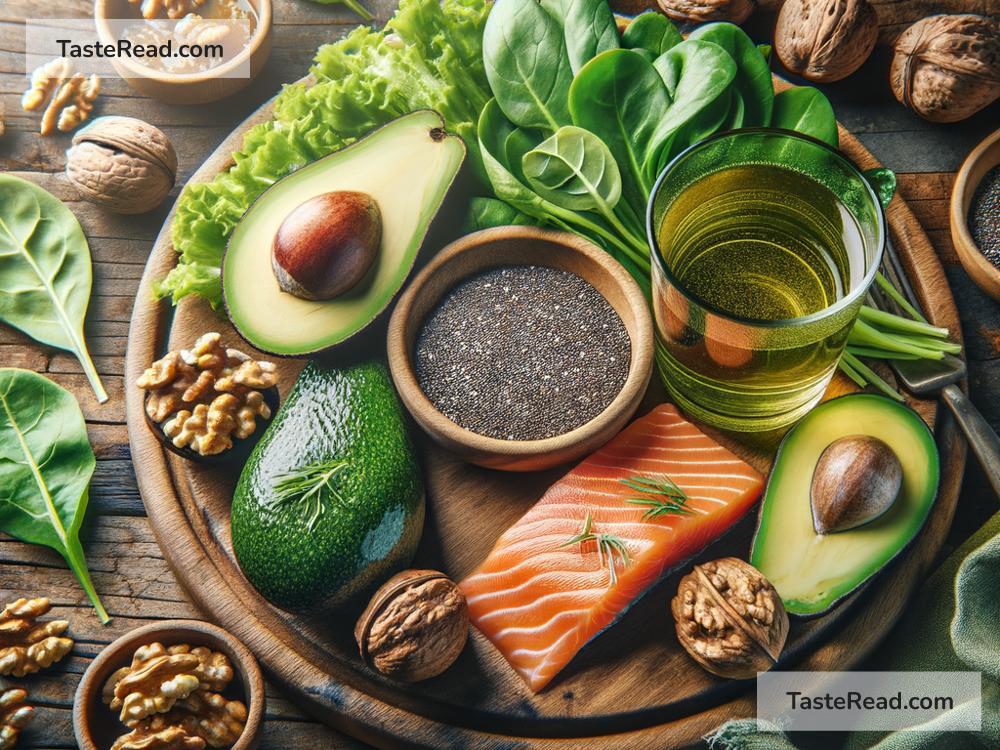Foods That Support Synovial Fluid Health: Keep Your Joints Moving!
Every time you bend your knees, wave your arms, or wiggle your fingers, your joints are hard at work. But have you ever wondered how they move so smoothly without wearing down? The answer is synovial fluid — a slippery, gel-like substance that acts as a lubricant and cushion between your bones. Synovial fluid helps reduce friction, supports joint movement, and nourishes the cartilage in your joints.
For healthy, pain-free movement, keeping your synovial fluid in good shape is key! And one great way to support it is by eating the right foods. In this blog, we’ll explore simple, delicious foods that can help maintain synovial fluid health and keep your joints happy.
Why Synovial Fluid Matters
Synovial fluid plays a crucial role in your body. It keeps your joints moist, flexible, and protected. Think of it as the “motor oil” for your bones — without it, your joints could become stiff and start wearing down prematurely.
However, factors like aging, dehydration, or inflammation can reduce the quality or quantity of synovial fluid. This can lead to discomfort, stiffness, and even joint problems like arthritis. The good news is that nourishing your joints with the right foods can help your body produce and preserve synovial fluid.
Top Foods for Synovial Fluid Health
Here are some foods packed with nutrients that can support synovial fluid health and improve joint function:
1. Omega-3 Fatty Acids: Salmon, Mackerel, and Walnuts
Omega-3 fatty acids are powerful anti-inflammatory nutrients that encourage your body to produce high-quality synovial fluid. Inflammation in the joints can damage synovial fluid and cartilage, so eating foods rich in omega-3s can help keep inflammation at bay.
Good Options:
– Fatty fish like salmon, mackerel, and sardines
– Plant-based options like walnuts, chia seeds, and flaxseeds
Omega-3s protect your joints while supplying the fatty acids your body needs to make synovial fluid.
2. Hyaluronic Acid-Rich Foods: Bone Broth and Sweet Potatoes
Hyaluronic acid is one of the main components of synovial fluid. It’s responsible for its “slippery” texture and ability to cushion your joints. Eating foods that boost hyaluronic acid levels naturally can help replenish and maintain healthy synovial fluid.
Good Options:
– Bone broth (especially homemade from chicken or beef bones)
– Root vegetables like sweet potatoes and carrots
Bone broth, in particular, contains collagen and amino acids that help your joints feel supported and lubricated.
3. Water: The Ultimate Lubricant
Although water isn’t technically a “food,” staying hydrated is critical for synovial fluid health. Synovial fluid is mostly water, so if you’re dehydrated, your joints might feel stiff and dry. Drinking plenty of water helps keep your joints flexible and mobile.
Tip: Set a goal to drink at least 8 cups of water daily. You can also hydrate with water-rich foods like cucumbers, watermelon, and oranges.
4. Antioxidant-Rich Foods: Berries and Leafy Greens
Antioxidants are important for synovial fluid health because they combat oxidative stress in your body. Oxidative stress can damage joint tissues and reduce the quality of synovial fluid. Foods rich in antioxidants can help protect your joints and prevent inflammation.
Good Options:
– Berries like blueberries, strawberries, and blackberries
– Leafy greens like spinach, kale, and Swiss chard
Snack on a handful of berries or add some spinach to your smoothie for an antioxidant boost.
5. Healthy Fats: Olive Oil and Avocados
Healthy fats are essential for joint lubrication because they help your body absorb fat-soluble vitamins like vitamin D and E — both of which support synovial fluid health. Fats also keep inflammation in check, which is vital for protecting your joints.
Good Options:
– Extra virgin olive oil
– Avocados
– Nuts like almonds and cashews
Drizzle olive oil over salads or enjoy avocado toast for a double dose of good fats.
6. Spices That Fight Inflammation: Turmeric and Ginger
Some spices, like turmeric and ginger, are natural anti-inflammatory superheroes. They can help reduce joint pain and swelling while promoting healthier synovial fluid. Turmeric contains an active ingredient called curcumin, which is especially good for joint health.
Good Options:
– Add turmeric to soups, smoothies, or teas
– Brew fresh ginger tea or use it in cooking
Sprinkle some turmeric into your recipes for extra joint-supporting benefits!
Lifestyle Tips to Support Synovial Fluid
In addition to eating these healthy foods, there are other ways to keep your synovial fluid working properly:
– Stay active: Regular movement stimulates synovial fluid production and keeps joints flexible.
– Maintain a healthy weight: Excess weight can place strain on your joints, reducing synovial fluid effectiveness.
– Avoid highly processed foods: Junk food, sugar, and refined carbs can trigger inflammation and harm your joints.
Conclusion
Synovial fluid is your body’s natural lubricant, and keeping it healthy is essential for flexible, pain-free joints. By adding foods like salmon, bone broth, spinach, berries, and turmeric to your diet, you can support synovial fluid production and improve your overall joint health. Pair these foods with hydration, exercise, and a balanced lifestyle, and your joints will thank you for years to come!
So next time you sit down for a meal, think about feeding not just your stomach — but your hardworking joints as well!


